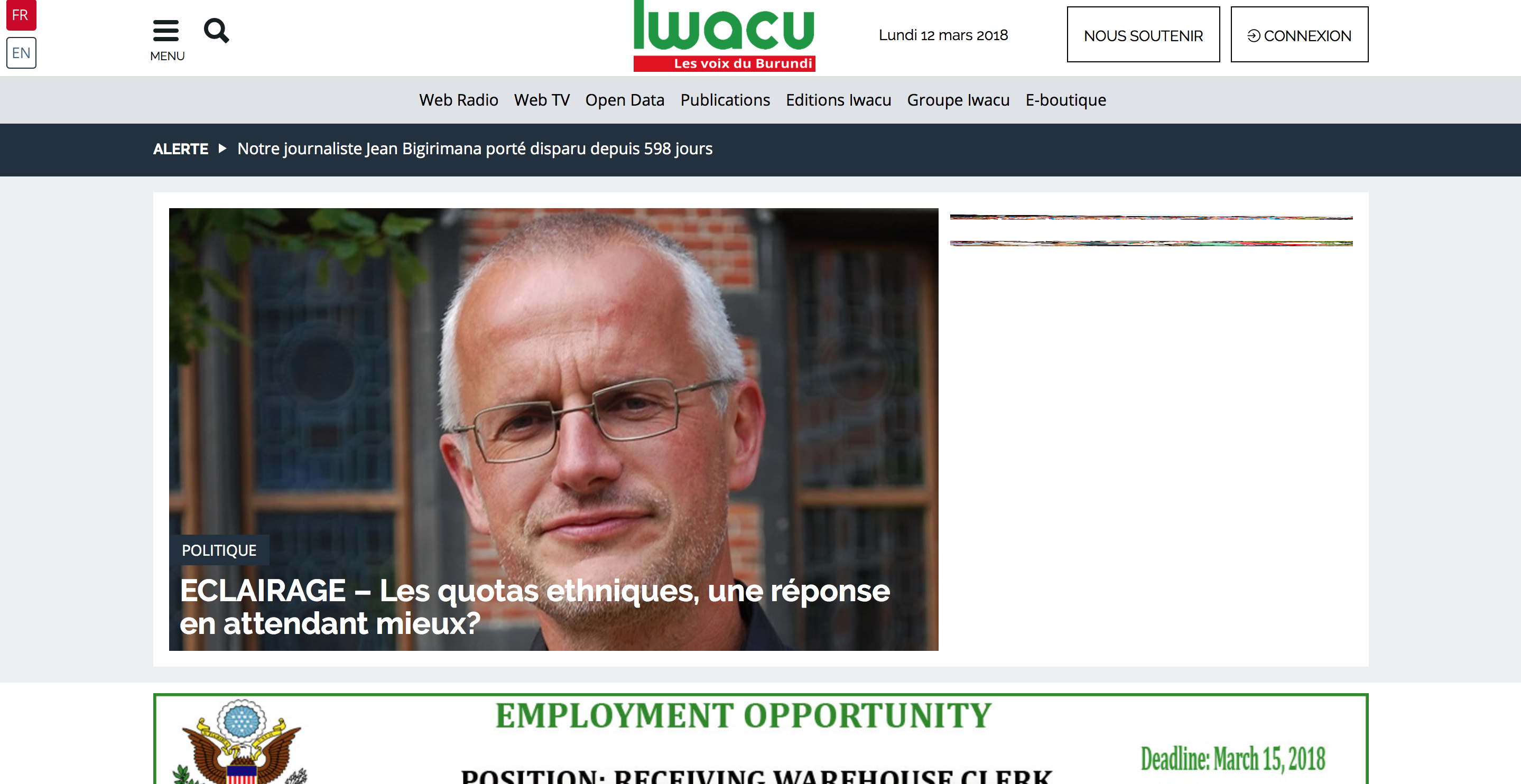Iwacu
Founded in 2008, the online weekly newspaper Iwacu has been one of Burundi’s few remaining independent media outlets since 2015, when the country’s radio stations were shut down on President Pierre Nkurunziza’s orders.
It was the most read newspaper in the capital, continuing to publishing reliable, independently-reported news and information and circumventing censorship thanks to social networks. But, like other news websites, it is now inaccessible within Burundi. Since 10 October 2017, anyone in Burundi trying to access the site arrives at a blank page. They think there is a problem with the web address or that access is being blocked, Or they even think the site has been shut down.

Burundi’s Internet Service Providers have nothing to say about the access problem, blaming Burundi Backbone System (BBS), a commercial fibre-optic network used by most of the country’s ISPs. And BBS denies any involvement in website blocking. But it is obvious that some of these operators are tacitly helping the Nkurunziza administration to block websites that don’t toe the government line. Like harassment of journalists, website blocking has become common ever since President Nkurunziza decided to run for a third term in 2015 despite widespread opposition.
Iwacu’s editor Antoine Kaburahe fled the country for safety reasons and now lives in self-imposed exile in Belgium. He has been there since an attempted coup against the Nkurunziza government in May 2015, during which the authorities refused to distinguish between coup supporters and the journalists who continued to provide the public with coverage of political developments. He was awarded a City of Paris medal at an event in Paris in May 2016 to pay tribute to “RSF information heroes.”


